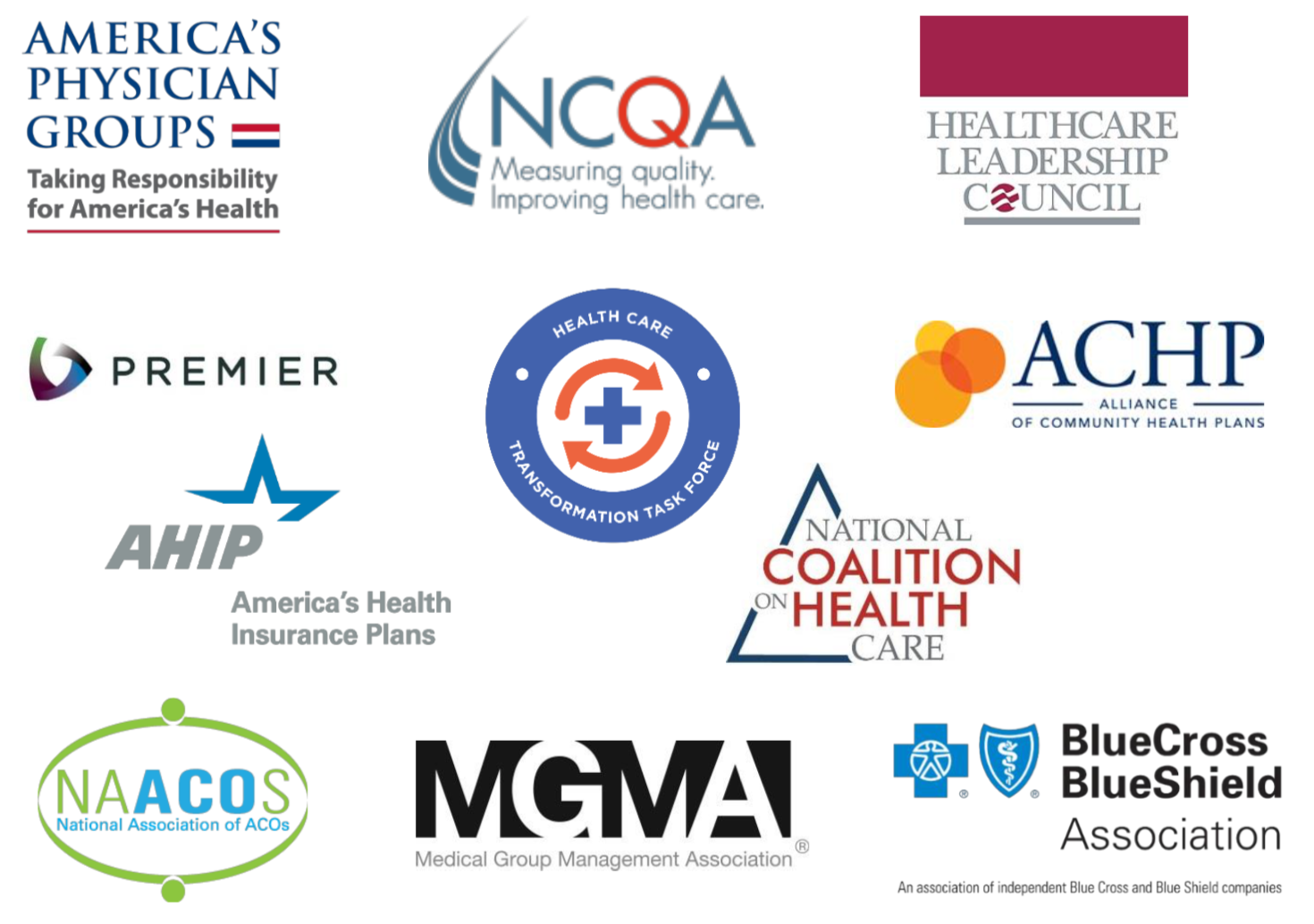June 1, 2018
Mr. Adam Boehler
Deputy Administrator for Innovation and Quality
Director, Center for Medicare & Medicaid Innovation
Centers for Medicare & Medicaid Services
U.S. Department of Health and Human Services
7500 Security Boulevard
Baltimore, MD 21244
Dear Director Boehler,
We, the undersigned, write to follow up on a previous letter sent by healthcare industry stakeholders asking your Agency to recognize physician participation in risk-bearing contracts in Medicare Advantage (MA) toward the Advanced Alternative Payment Model (Advanced APM) participation criteria as outlined in the Medicare Access and CHIP Reauthorization Act of 2015 (MACRA).
If we are truly committed to moving our nation’s delivery system away from volume-based compensation and towards payment for value and high-quality care, we must ensure provider incentives are aligned in both traditional Medicare and MA to incent participation in risk-bearing alternative payment models. As you know, there is evidence that risk-bearing contracts in MA deliver care that is of higher quality and lower cost than care delivered in fee-for-service based MA, yet these providers still aren’t afforded credit under MACRA.
As you know, the Centers for Medicare & Medicaid Services (CMS) recently opened an Advanced APM portal for MA plans which allows the plans to request that their payment arrangements with providers receive an “other payer advanced APM determination” under the Quality Payment Program (QPP) mandated by MACRA. In the 2019 performance year, eligible clinicians may use their other payer risk contracts in combination with participation with an Advanced APM in traditional Medicare to qualify for the 5 percent bonus under the Advanced APM track. However, physician groups must still meet the 25 percent revenue threshold in traditional Medicare to qualify. For many physicians in areas of the country with heavy MA penetration, this is not achievable. Risk contracts should and must be treated equally across traditional Medicare and MA to truly advance the value movement.
We appreciate the steps CMS took last November in the CY 2018 Quality Payment Program (QPP) final rule to address this issue. In the rule, CMS said it intends to develop a demonstration project that will test the effects of allowing clinicians to receive credit for financial risk-based arrangements with MA plans “prior to 2019 and through 2024.” We ask that you implement such a demo as quickly as possible.
Incentives are already in place for risk contracting in traditional Medicare under MACRA, and we firmly believe it is time to afford equal credit to providers taking risk in MA. Not only will creating greater opportunities and incentives for risk contracting in MA advance Medicare delivery system for all seniors, it also achieves the goal of creating more APMs and promoting the movement to value more broadly.
Even though one in three Medicare beneficiaries is now enrolled in an MA plan, the innovative providers who are engaged in MA risk contracts will not get credit in the eyes of CMS for three more years. We strongly encourage you to afford credit to these providers by announcing a new MA Advanced APM in time to impact payments for 2019 (based on 2017 performance).
MA plays a significant role in properly aligning provider incentives to move away from fee-for-service toward value-based reimbursements. If we are truly serious about modernizing our nation’s healthcare delivery system and improving access to quality healthcare services for America’s seniors, providers in MA must have access to the same incentives as their colleagues practicing in traditional Medicare.
Again, we appreciate the progress CMS has made providing parity to providers in MA and urge you to continue to work swiftly to ensure these providers are afforded Advanced APM status under MACRA this year.
Thank you for your consideration.
cc:
The Honorable Alex Azar
The Honorable Seema Verma
Sincerely,

